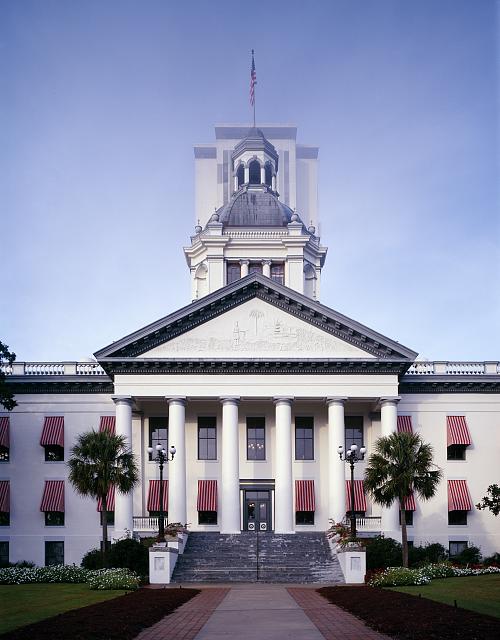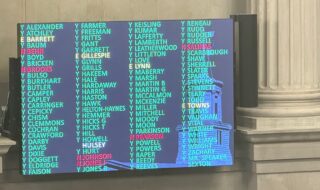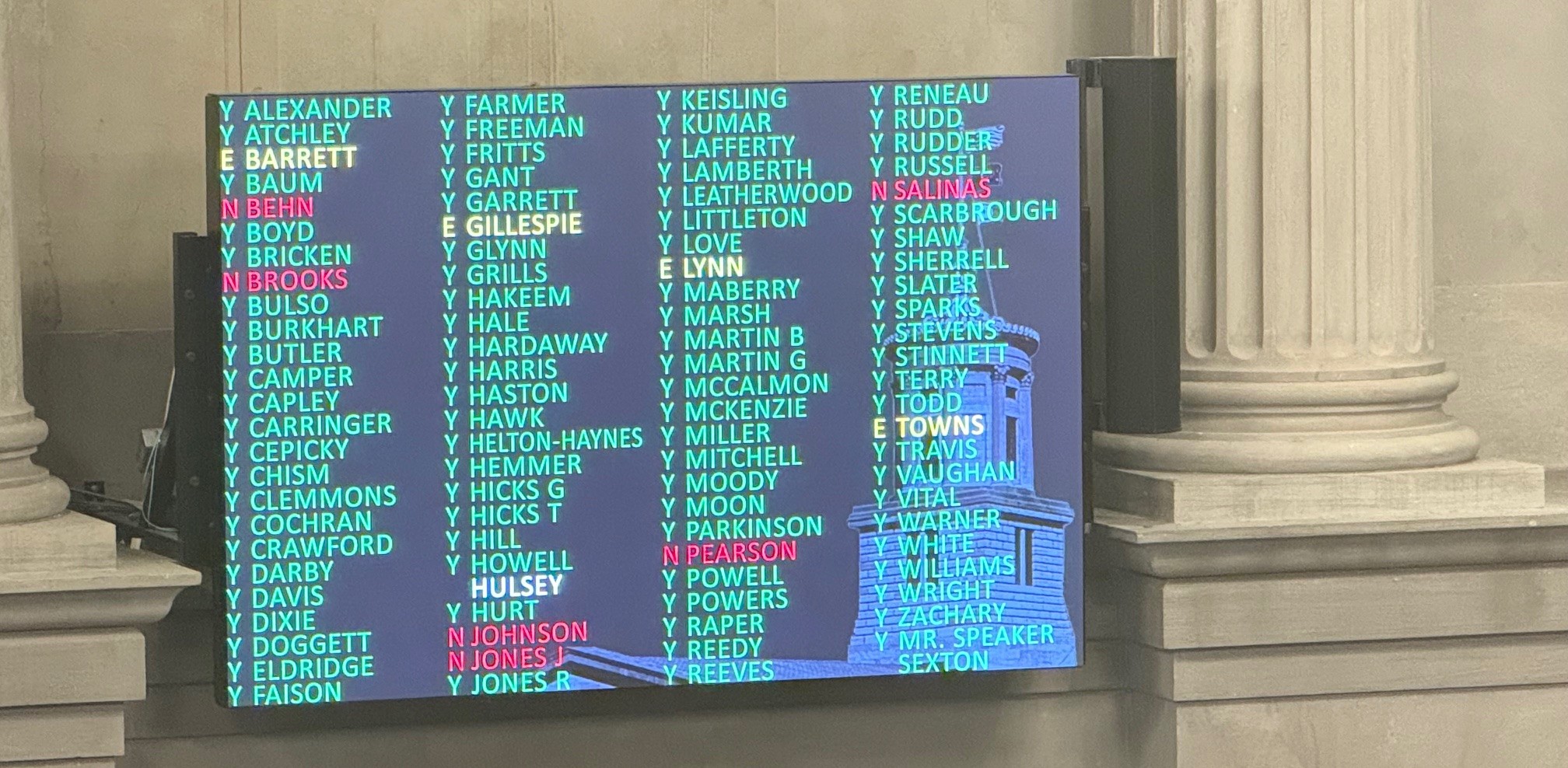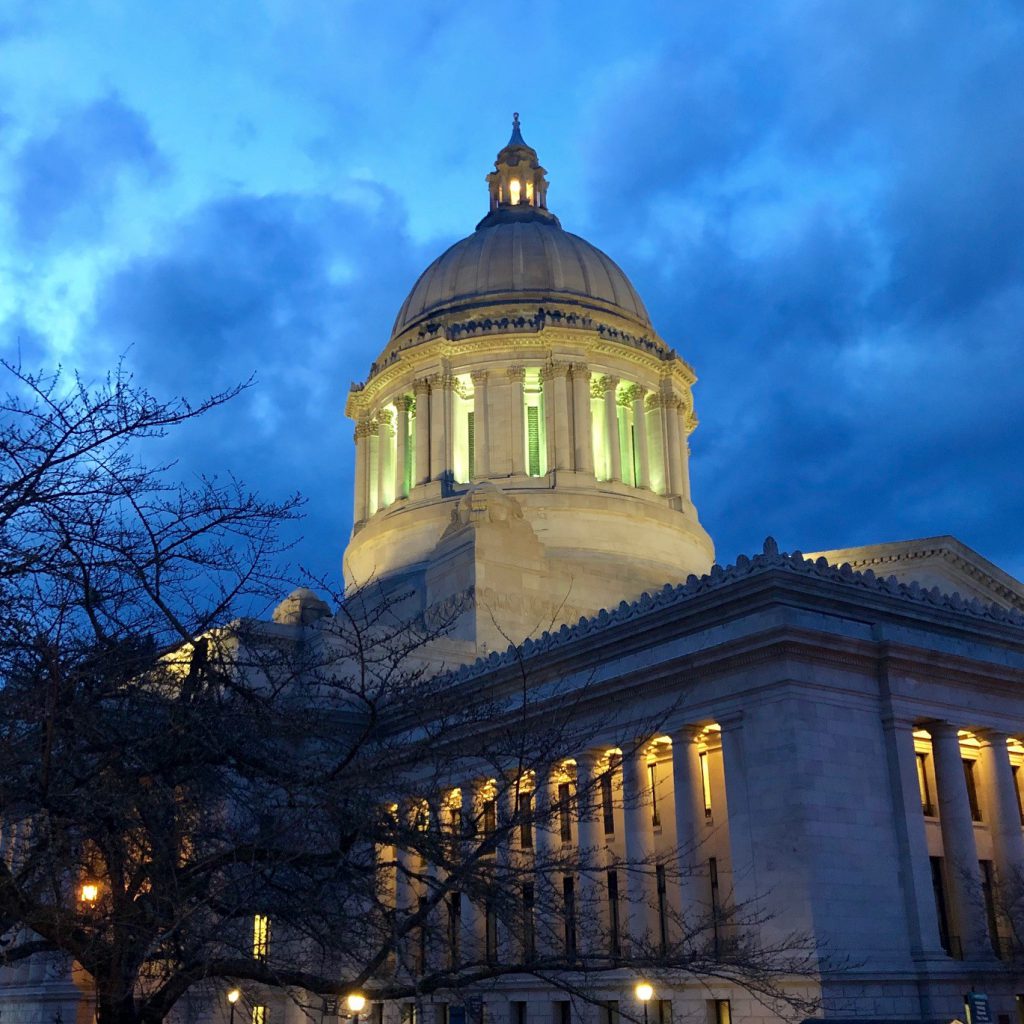February 11, 2022
Weekend Work for Legislature Ahead of Big February 15 Deadline
State Director Patrick Connor reports from Olympia on the small-business agenda at the February 11 close of Week 4 of the 2022 legislative session
Monday, February 7, marked the first fiscal cut-off. Policy bills with a substantial budget impact had to clear a fiscal committee by the end of that day. Bills deemed “NTIB,” or necessary to implement the budget, are exempt from that deadline. The state House and Senate spent the remainder of Week 5 on the floor considering bills in advance of the Tuesday, February 15, House of Origin Cut-Off.
In anticipation of floor action, NFIB sent PRIORITY VOTE letters to legislators in each chamber, advising them of which bills are eligible for inclusion in our 2021-22 Voting Record.
Environment
- SB 5722, Reducing greenhouse gas emissions in buildings – An amendment that would have improved the bill was withdrawn from consideration in the Senate Ways & Means Committee. That panel approved the bill, and the Senate Rules Committee has placed it on the Senate second reading calendar, making it eligible for a floor vote. NFIB opposes the bill.
Health Care
- HB 1688, Balance billing – NFIB met with staff from the Office of the Insurance Commissioner (OIC) this week to discuss our concerns with Sec. 18 of the bill. This particular provision allows health insurers to designate medical providers as part of the insurer’s network, even though a contract has not been agreed upon. Neither the insurer nor OIC is currently required to notify the medical provider of this status. Amendments to address those concerns are being discussed. NFIB continues to support the bill in anticipation of resolving this particular issue and included the bill among our House priority votes.
Labor
- HB 1076, Qui tam –Fortunately, this bill from 2021, authorizing trial attorneys and labor unions to sue employers over alleged violations of nearly a dozen workplace safety and health or worker rights laws, remains in House Rules. NFIB opposes the bill and listed it among our House priority votes.
- HB 1474, Increasing unemployment reporting audits and penalties – Another hold-over from last year, this bill would have the state’s increasingly inept Employment Security Department (ESD) step up audits and raise penalties on employers for mistakes – even unintentional errors – on quarterly tax returns. The bill is intended to expose and punish employers who fail to list and pay unemployment taxes on workers. Given ESD’s growing record of failure – nearly a billion dollars sent to Nigerian fraudsters, overspending the Paid Family & Medical Account by as much as $200 million, not to mention thousands of processing errors and delays on unemployment claims and employer objections – it is laughable to expect this department could successfully tackle an increased audit emphasis at all, let alone without wrongfully citing hundreds or thousands of employers for suspected underreporting. As you might imagine, NFIB opposes the bill, which remains in in House Rules, and included it on our priority vote list.
- HB 1763, video taping independent medical examinations (IMEs) – NFIB opposes this bill to allow workers to have an observer of their choice record independent medical examinations and then submit those recordings for consideration during a workers’ compensation claim dispute. The same practice of requiring a court order and the use of a professional videographer as applies in other types of insurance disputes should apply in workers’ compensation cases as well. The bill is in House Rules and was included in our priority vote letter.
- HB 1837, Ergonomics – We still have an active Action Alert online so members can contact their state representatives, asking them to oppose this billion-dollar workplace mandate. NFIB, and the rest of the state’s employer community, opposes the bill, which is in House Rules. It was included in our priority vote list.
- SB 5130, Personnel file disclosure – Another holdover from 2021, this bill is now on the Senate 2nd reading calendar, making it eligible for a floor vote. While NFIB does not object to reasonable worker access to their personnel file, employers should not be forced to provide “a signed, written statement of the reasons for … discharge” in an at-will employment state or be subject to litigation from a disgruntled employee. Moreover, the bill also prohibits redacting sensitive information, including social security numbers, medical information, or other personally identifiable details. NFIB opposes the bill for these reasons and included it among our Senate priority votes.
- SB 5137, Workers’ compensation cost-of-living adjustments – Also from the 2021 file, this bill was brought back to life in the Senate Rules Committee. Our hope is that it may be a vehicle for addressing rising costs in the state-run workers’ compensation system. Details are sparse at the moment, but NFIB supported the bill last year and included in among our priority votes as a placeholder for workers’ comp relief for employers.
- SB 5801, loser pays for workers’ comp appeals – This bill has been mischaracterized as somehow benefiting large employers, which is not at all the case. Self-insured employers, those firms with large enough workforces and bank accounts to buy themselves out of participating in the State Fund, are already subject to loser-pays rules for workers’ comp appeals. This bill would overturn current practice, and force small employers to pay their opponent’s legal fees if the employer loses an appeal in court. Subjecting small employers to loser-pays would effectively bar the courthouse door to them. This is fundamentally unfair in a system that is designed to favor workers. The alleged savings by making this change is roughly $500,000 per year, on average, and comes from the premiums employers pay L&I for workers’ compensation. NFIB strongly opposes the bill and included it among our priority votes. It is on the Senate 2nd reading calendar and is eligible for a floor vote.
Regulatory
- HB 1614, online marketplaces / organized retail theft – This bill advanced from House Rules yesterday is now eligible for a floor vote. The bill places greater reporting requirements on small businesses and individuals selling a large volume of items through online marketplaces. It does not provide any additional resources to law enforcement for investigation or prosecution of these crimes. The bill doesn’t even require the large retailers supporting it to report thefts of goods to online marketplaces. NFIB opposes this bill because it presents a serious threat to small businesses’ data privacy. It was listed on our House priority vote list.
- HB 1801, Right to Repair – The House is expected to vote on this bill to allow consumers and small repair shops greater access to tools, parts, instructions, and other materials needed to repair electronic devices like cellphones, tablets, laptops and desktop computers. Manufacturers would be required to sell these items at fair prices. Apple is the primary opponent, although Google is said to be quietly working to kill the bill too. NFIB supports the bill, based on the results of our statewide member ballot. It was listed among our priority votes for the House.
- SB 5781, increasing penalties for organized retail theft – The bill passed the Senate Law & Justice Committee and has been made eligible for a floor vote by the Senate Rules Committee. NFIB supports this bill, which is also listed on our priority vote list.
Tax & Fiscal
- HB 1819 and HJR 4208, Business personal property tax threshold – NFIB was advised this week that these bills have been deemed NTIB, necessary to implement the budget. Rep. Mari Leavitt, prime sponsor of this package, is continuing to work with stakeholders to see if agreement can be reached. NFIB, which supports the concept, remains engaged in these discussions. County assessors appear to be stepping up their opposition to the legislation.
- SB 5873, Unemployment insurance tax relief – In a bit of good news, the Senate this week approved SB 5873 by a vote of 48-1. The bill would lessen the social tax increases for unemployment insurance scheduled for 2022 and 2023, as well as cap the social-tax modifier for small businesses employing 10 or fewer workers. All told, this is estimated to be roughly $265 million in UI tax relief. NFIB is asking members to use this Action Alert to thank their state senator for supporting the NFIB priority bill.
Late nights of floor action are expected for Friday, Saturday, Sunday, and Monday, in advance of Tuesday’s House of Origin cut-off. Policy committee hearings will resume next Wednesday.
Prior Legislative Updates
- February 4—NFIB-Backed Retail Theft Bill Advances
- January 28—Governor Signs Bill Delaying WA Cares Payroll Tax
- January 21—House Approves Delaying WA Cares Payroll Tax
- January 14—Ergonomics is Back! Bill Would Repeal Initiative 841
- January 7—Pre-Session Glance
NFIB is a member-driven organization advocating on behalf of small and independent businesses nationwide.
Related Articles



















